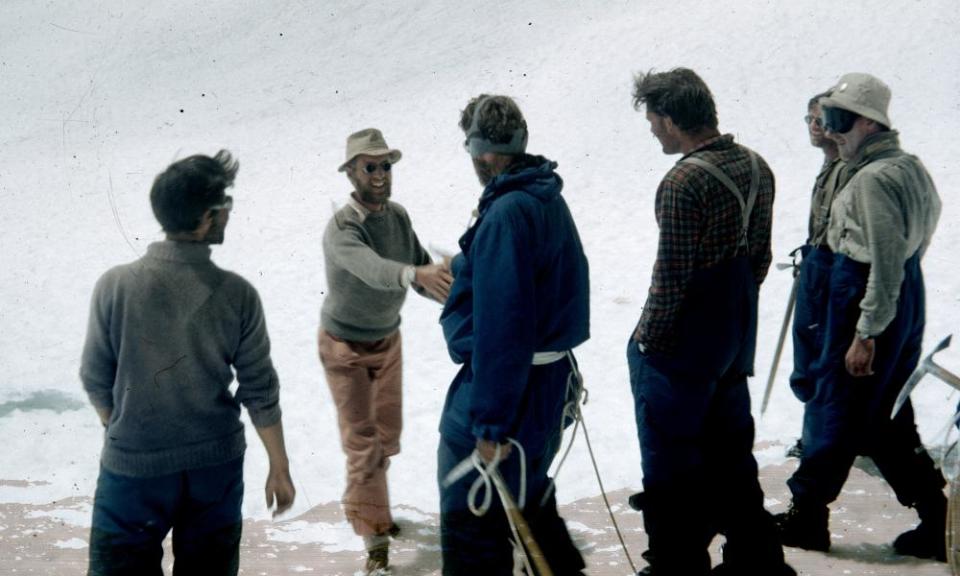Jan Morris: She sensed she was ‘at the very end of things’. What a life it was …

Usually, nine months after meeting someone, interviewing them and writing about them for the newspaper, you would expect one or two details of the encounter to stay alive in your mind. But my recollection of the day in late February that I visited Jan Morris at her home in north-west Wales is not like that. Every moment remains vivid.
Perhaps, you might say, this is because my pre-lockdown journey there – driving through Snowdonia on a wild, windy morning and down to the sea at Criccieth – was just about the only travelling I’ve done all year. But I don’t believe it is that. As anyone knows who ever made that journey to visit her at home, or who ever opened any of her 40 books, Morris dealt in adventure. Having packed her life brim full of extraordinary journeys, pilgrimages and quests, she knew exactly how to conjure their contours for others.
On Friday, her son Twm, a celebrated poet who writes in Welsh, and has a cottage across the road from hers, announced her death, at 94, in fitting bardic terms: “This morning at 11.40 at Ysbyty Bryn Beryl, on the Llyn, the author and traveller Jan Morris began her greatest journey. She leaves behind on the shore her lifelong partner, Elizabeth.”

When we met, in the promise of spring, part of Morris’s always cheerful talk was about that last journey. Elizabeth, who said hello from her bedroom, had for some years been suffering with dementia. Morris feared her own mind was failing, though there was scant evidence of that in her conversation. While we drank tea and talked in the long beamed sitting room, like the creaking cabin of a tall ship, a small fluttering bird tapped its beak on the window from time to time as if to gain entry. “Do you hear the bird tapping?” Morris asked. “It used to portend death, didn’t it? We have it every day at different windows.”
If she had a sense, as she said, that she was “at the very end of things”, she had not forgotten any of the steps that had brought her there. And what a journey! Morris, at 26, was the only journalist to accompany Edmund Hillary and Tenzing Norgay on their 1953 ascent of Everest, and broke the story in the Times on Coronation Day. At other times, she wrote about living on Field Marshal Montgomery’s family houseboat on the Nile, and in a palazzo on the Grand Canal in Venice. She retained just a vestige of the journalist’s one-upmanship. Pointing at a picture of the 22,000ft Everest camp she reached, she said “That wasn’t a bad story, was it?”
I wouldn't use the word 'sex change' for what happened to me; I really absorbed one into the other. I'm a bit of each now
Jan Morris
When I got back from that day in Wales, I filled in gaps of books of Morris’s I hadn’t read and, in lockdown, I listened to the audio versions of some of those I had. These included her towering trilogy about the British empire, Pax Britannica, and Conundrum, a personal odyssey that began with her understanding aged “three or perhaps four … that I had been born into the wrong body, and should really be a girl” and ended with years of hormone treatment and pioneering gender reassignment surgery in Casablanca in 1972.
Of all the perilous journeys she had made in her life, that biological one seemed almost of least interest to her when we met, though she corrected something I said at one point. “I should say I would never use the word change, as in ‘sex-change’, for what happened to me. I did not change sex; I really absorbed one into the other. I’m a bit of each now. I freely admit it… But that’s all in that book I wrote, isn’t it?”
One consequence of what she called her “at-one-ment” was that she and Elizabeth had to divorce, though they continued to live together and keep a home for their children. When it became possible, Jan and Elizabeth reaffirmed their bond in a civil union ceremony in nearby Pwllheli in 2008, witnessed by a local couple who invited them to tea at their house afterwards.
Related: Jan Morris obituary
That union will persist. When we met, Morris mentioned how they owned a small island on the Dwyfor river, which flows by their house. When the time came, their ashes would be scattered there together, and the place marked with a slate headstone – currently in a cupboard under the stairs – reading: “Here lie two friends, at the end of one life”.
The idea of eternal rest held little appeal for Morris’s roving soul. In one fantasy, she imagined a posthumous affair with a 19th-century admiral, Jack Fisher; and in her most haunted book, about the city of Trieste, she pictured another eternity beneath its seashore castle which sounds about perfect. “Most of the after-time, I shall be wandering with my beloved along the banks of the Dwyfor: but now and then you may find me in a boat below the walls of Miramar, watching the nightingales swarm.”


